Latest DePIN News

2 days ago
Exploring DePIN: The Future of Decentralized Infrastructure in Web 3.0
In the rapidly evolving landscape of Web 3.0, decentralized physical infrastructure networks (DePIN) are emerging as a transformative force. These networks aim to decentralize essential services such as data storage and computing, making them more accessible and efficient. Among the standout projects in this domain are The Graph Protocol, Theta Network, Akash Network, Arweave, Filecoin, and Render Network. Each of these projects contributes uniquely to the decentralization movement, offering innovative solutions that challenge traditional centralized models.
The Graph Protocol serves as a decentralized indexing protocol that allows developers to access blockchain data quickly through GraphQL queries. By creating an open market for indexed data, it empowers users to curate and sell data sets known as subgraphs, enhancing the efficiency of decentralized applications (DApps). Similarly, Theta Network revolutionizes video streaming by utilizing users' spare bandwidth to create a decentralized content delivery network (CDN). This not only reduces load times but also incentivizes users through its operational token, TFUEL, fostering a community-driven approach to content delivery.
On the cloud computing front, Akash Network offers a decentralized alternative to traditional services, enabling users to rent out their excess computing power. This model significantly reduces costs and democratizes access to cloud resources. Arweave stands out by providing permanent data storage solutions, ensuring that information remains accessible indefinitely without ongoing fees. Filecoin complements this by allowing users to rent out spare storage space, creating a decentralized marketplace for data storage. Lastly, Render Network leverages idle GPU power for tasks like 3D rendering, establishing a decentralized marketplace that connects users needing computational resources with those who have them available. Together, these projects are shaping a more open and accessible digital future, highlighting the potential of DePIN in the Web 3.0 ecosystem.
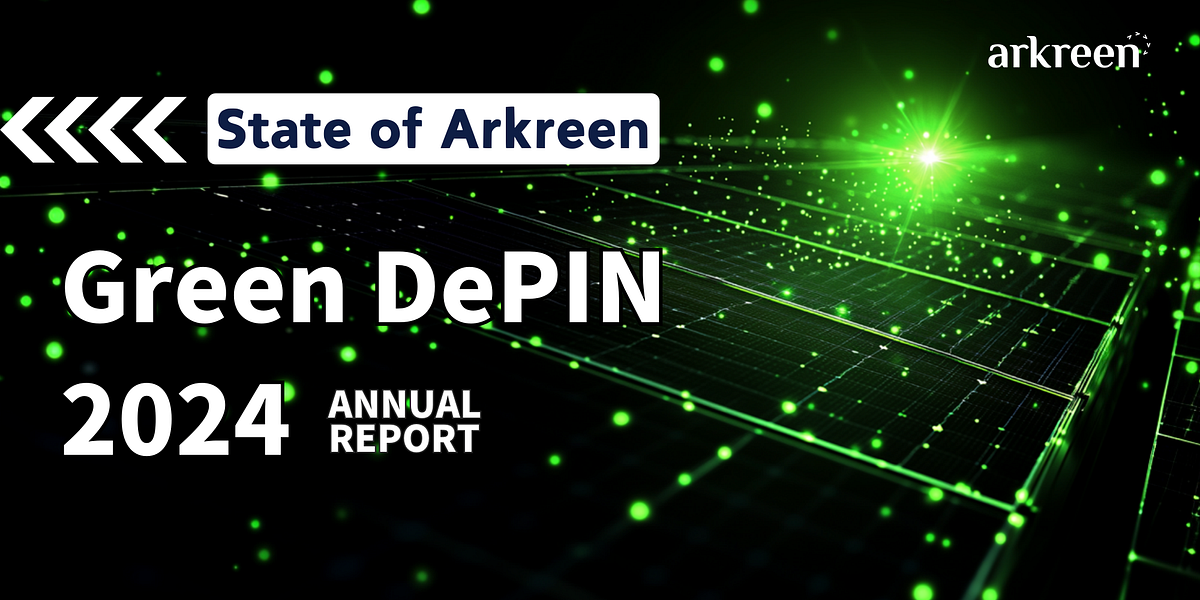
2 days ago
Arkreen Network: Pioneering the Future of Decentralized Energy in 2024
2024 has been a transformative year for Arkreen Network, establishing itself as a leader in the Decentralized Physical Infrastructure (DePIN) sector. The launch of its Mainnet and the deployment of over 190,000 Green Energy Data Nodes signify a significant leap in the on-chain energy asset protocol. Arkreen's flagship initiatives, including the Community Solar Program (CSP) and the Plug for Green Program (PGP), have empowered global participants to engage in decentralized energy infrastructure and climate action. With industry backing from Polygon, Celo, and Solana, Arkreen is poised to revolutionize the voluntary carbon market through tokenized Renewable Energy Certificates (RECs), projecting a DePIN market growth to over $3.5 trillion by 2028.
Arkreen's achievements in 2024 are noteworthy, with significant milestones such as the issuance of 131,920 MWh of on-chain tokenized REC assets and the offsetting of over 6,798 tons of CO2 through 808,176 on-chain climate actions. The Community Solar Program, launched in April, enables participants to self-certify renewable energy generation data on the blockchain, promoting an innovative “Impact to Earn” mechanism. Additionally, the Remote Miner Pro initiative enhances accessibility for green energy mining, while the REC Real-World Asset (RWA) initiative allows for community-driven certification of green energy data, creating new pathways for individuals to engage in climate action.
Looking ahead, Arkreen's vision for 2025 is to continue driving innovation in decentralized energy solutions. The integration of battery solutions through the Battery Bank Program (BBP) and the expansion of the Plug for Green Program reflect Arkreen's commitment to sustainable energy practices. With ongoing partnerships and collaborations aimed at enhancing renewable energy adoption and decentralized solutions, Arkreen is set to play a pivotal role in shaping a greener future. The community's engagement and the strategic initiatives undertaken in 2024 lay a robust foundation for Arkreen's continued success in the evolving landscape of renewable energy and decentralized infrastructure.
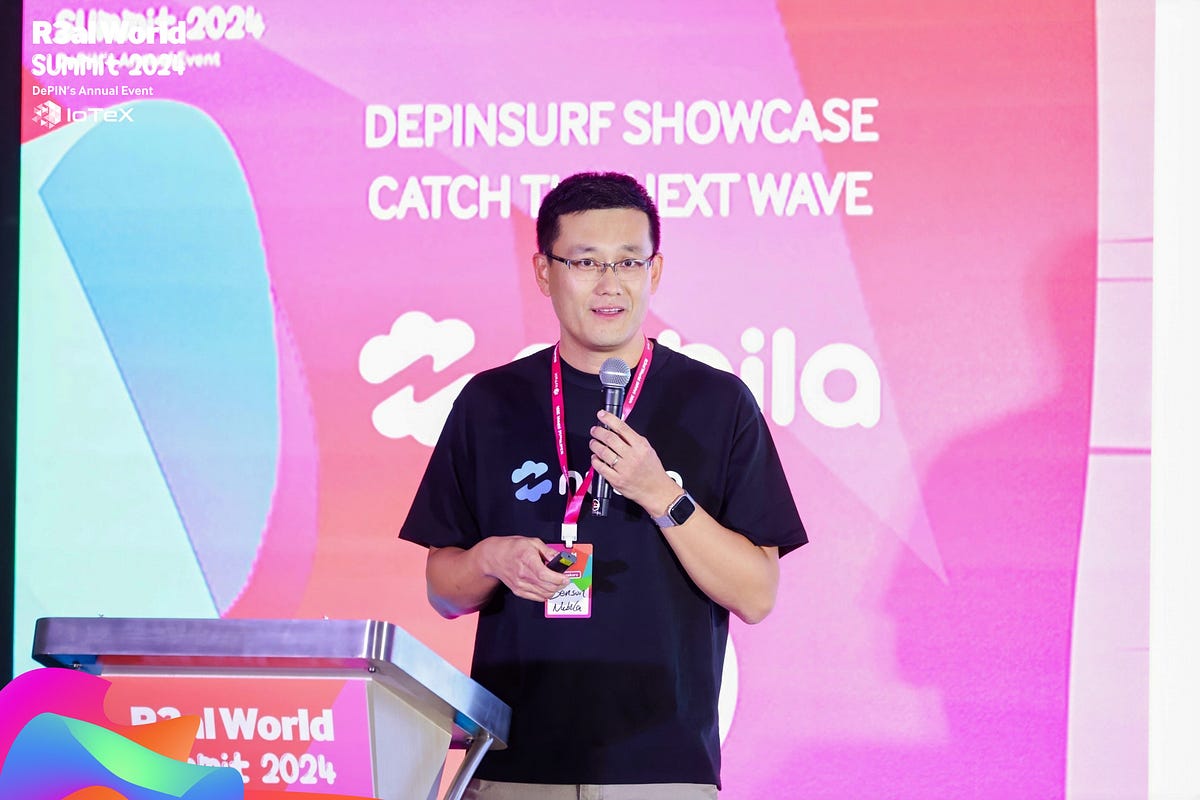
3 days ago
Nubila Network Celebrates a Landmark Year and Looks Ahead to 2025
As 2024 comes to a close, Nubila Network celebrates a year filled with significant achievements and innovations in the realms of decentralized physical infrastructure networks (DePIN) and MachineAI. The Nubila community has witnessed the deployment of over 18,000 Marco devices, which have created a unique decentralized network capable of monitoring hyperlocal weather and contributing to sustainability efforts. Additionally, the sale of 15,000 validator nodes has exceeded expectations, enhancing the transparency and efficiency of the Nubila network. The integration of Marco and node data into industries such as agriculture and renewable energy through the Nubila ESG Oracle showcases how DePIN can effectively address real-world challenges, marking a pivotal year for the project.
MachineAI has also played a crucial role in transforming data into actionable insights, aiding industries in disaster preparedness and resource optimization. The collaboration with partners like IoTeX and VeChain has propelled the development of smarter ecosystems, making strides in smart cities and precision agriculture. Furthermore, Nubila's commitment to sustainability has led to the establishment of the largest ESG data network, empowering industries to make informed, environmentally conscious decisions. The support from prominent industry players has fueled Nubila's growth, allowing it to set new standards in ESG data integration and transparency.
Looking ahead to 2025, Nubila plans to ramp up the deployment of Marco devices and enhance MachineAI's capabilities with predictive insights. The expansion of the DePIN ecosystem is also on the horizon, with new partnerships and applications aimed at redefining the use of real-world data. A mysterious development known as the “N” factor is generating excitement, promising to introduce innovative engagement and utility within the Nubila ecosystem. The Nubila community's unwavering support has been instrumental in these achievements, and together, they are poised to continue building a sustainable future powered by decentralized data networks and AI-driven insights.
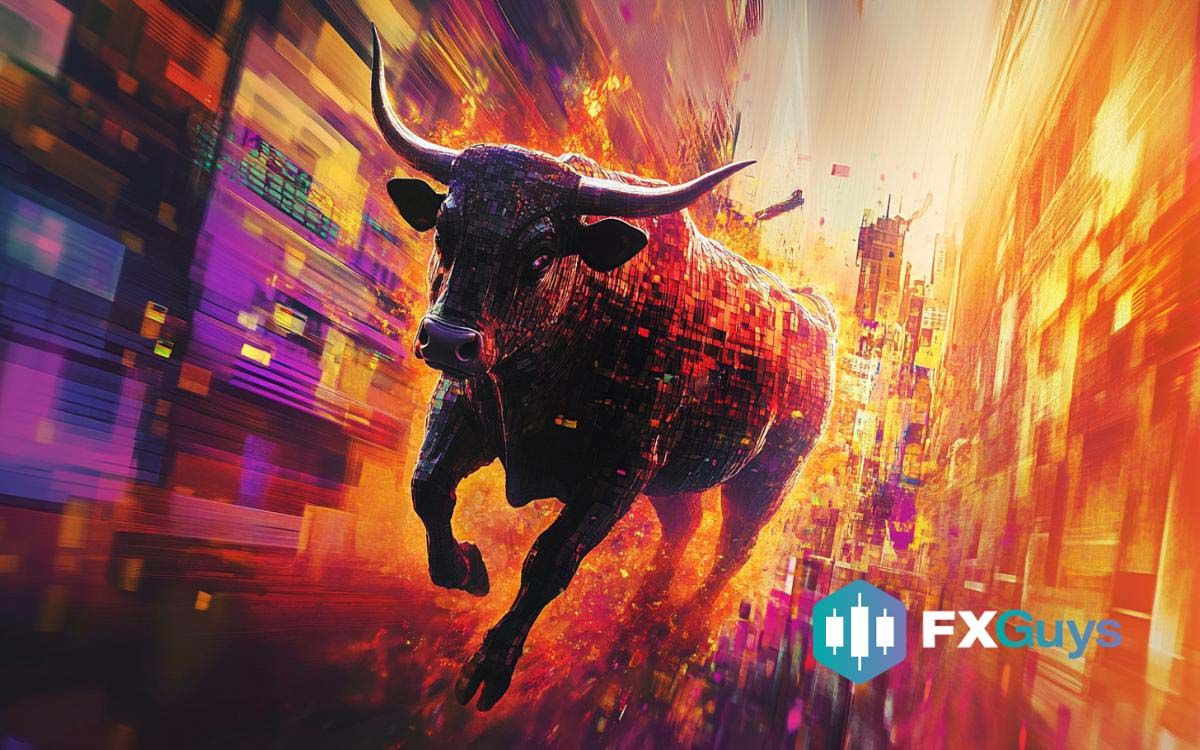
3 days ago
FXGuys Set to Outperform Major Altcoins in Upcoming Bull Run
Recent speculation suggests that FXGuys ($FXG) may surpass established altcoins like Solana (SOL) and Filecoin (FIL) in the upcoming bull market. Both SOL and FIL have experienced notable downtrends, with corrections of 25% and 12% respectively over the past month. In contrast, FXGuys is attracting traders with its innovative programs, particularly the Trader Funding Program, which empowers users to potentially turn a $100 investment into $10,000 by participating in its Stage 2 public presale, where $FXG is priced at $0.04. This has led to increased interest in FXGuys as a promising investment opportunity.
Solana, currently in a downtrend, has seen a 27% decline from its all-time high of $264. A crypto analyst, Carl Runefelt, noted that Solana has successfully tested a triangle pattern and could see a surge to $330 if it maintains levels above $180. The $175 support level is crucial for SOL, as holding this could trigger a rally, while a breach may lead to further selling pressure. Meanwhile, analysts believe that $FXG has the potential to outperform SOL and FIL in the upcoming bull run due to its unique offerings and market positioning.
Filecoin is also gaining attention, particularly with a reported 30% growth in decentralized storage usage and the launch of Filecoin Web Services. Despite a 12% price drop in the last month, analysts indicate that FIL has broken out of a two-year descending triangle pattern, signaling a potential end to its bearish phase. With a solid support level at $5, FIL could aim for a retest of its recent high of $8.25. However, the consensus among experts is that $FXG is poised to deliver significant returns, with projections suggesting it could achieve a remarkable 10,000% ROI in the next bull run, making it an attractive option for investors looking for high-growth opportunities.

4 days ago
AYDO's Breakthrough Year: Bridging Web2 and Web3 in 2024
2024 marked a pivotal year for AYDO within the Decentralized Physical Infrastructure Network (DePIN) ecosystem, as the project successfully bridged the gap between Web2 and Web3. This innovative platform empowered users to take control of their IoT-generated data, transforming it into an asset that they could own and monetize. AYDO made significant strides at major blockchain and tech events, including Token2049 and the DePIN Summit 2024, showcasing its advancements and forming strategic partnerships with notable DePIN and AI projects. One of the highlights was being selected as one of only six projects to join the prestigious DePIN Base Camp accelerator, further solidifying its position in the market.
The beta testing phase of AYDO received an overwhelming response, with over 7,000 applicants vying for a chance to participate. From this pool, 300 individuals were chosen to engage in the beta launch, including Ambassadors and AYDO OGs. Their feedback has been invaluable in refining the platform, ensuring a user-friendly experience. In addition to technological progress, AYDO focused on community engagement by launching a Discord server and establishing an Ambassador Program. This initiative fostered a sense of belonging among members, rewarding them for their contributions and insights.
Looking ahead to 2025, AYDO is poised for further growth with the upcoming official app launch. The partnerships formed throughout 2024, such as those with 375ai and Axone, have expanded AYDO's capabilities, allowing for enhanced data collection and monetization opportunities. To celebrate its achievements, AYDO is hosting a Testnet giveaway, encouraging community participation through creative tasks. As AYDO continues to evolve, it aims to revolutionize the decentralized data landscape, creating significant value for users worldwide and solidifying its role in the blockchain and IoT ecosystem.
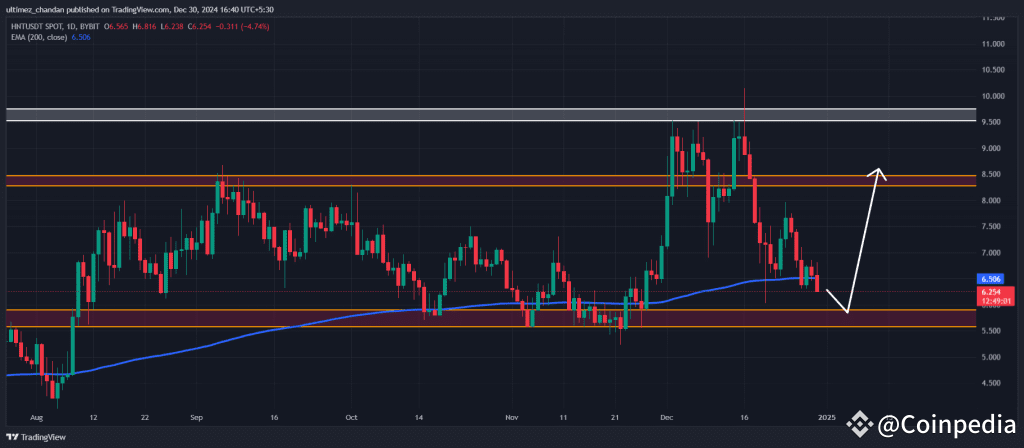
4 days ago
Top 10 DePIN Coins to Invest in 2025
In the rapidly evolving cryptocurrency landscape, Decentralized Physical Infrastructure (DePIN) is emerging as a significant narrative for investment in 2025. DePIN projects leverage blockchain technology to enhance real-world physical infrastructure, creating value for both consumers and producers. This article highlights the top 10 DePIN coins that are expected to perform well, showcasing their market capitalizations and promising price actions. Among these, Helium (HNT) stands out with its bullish price action pattern, suggesting a potential surge of 30% to reach $8.5. Similarly, Filecoin (FIL) is anticipated to rally by 65% if it maintains support above $4.90, while Theta Network (THETA) could see a 36% increase if it breaks above $2.45.
Other notable mentions include Internet Computer (ICP), which has found support at critical levels, indicating a potential 55% surge to $15.45. IOTA has attracted attention with a remarkable 540% increase following recent events, although it has faced a correction. If it holds above $0.28, a 35% rise to $0.40 is plausible. Render (RENDER) is also positioned for a breakout, with a potential 60% increase if it surpasses $7.22. Meanwhile, Arweave (AR) and Akash Network (AKT) are showing consolidation and support at key levels, suggesting possible surges of 50% and 60%, respectively.
Lastly, AIOZ Network (AIOZ) and Hivemapper (HONEY) are also on the radar, with AIOZ poised for a 55% increase if it holds above $0.82 and HONEY potentially surging by 50% if it breaks the $0.09 resistance. These DePIN coins represent significant opportunities for investors in 2025, especially if the market experiences a bullish trend.
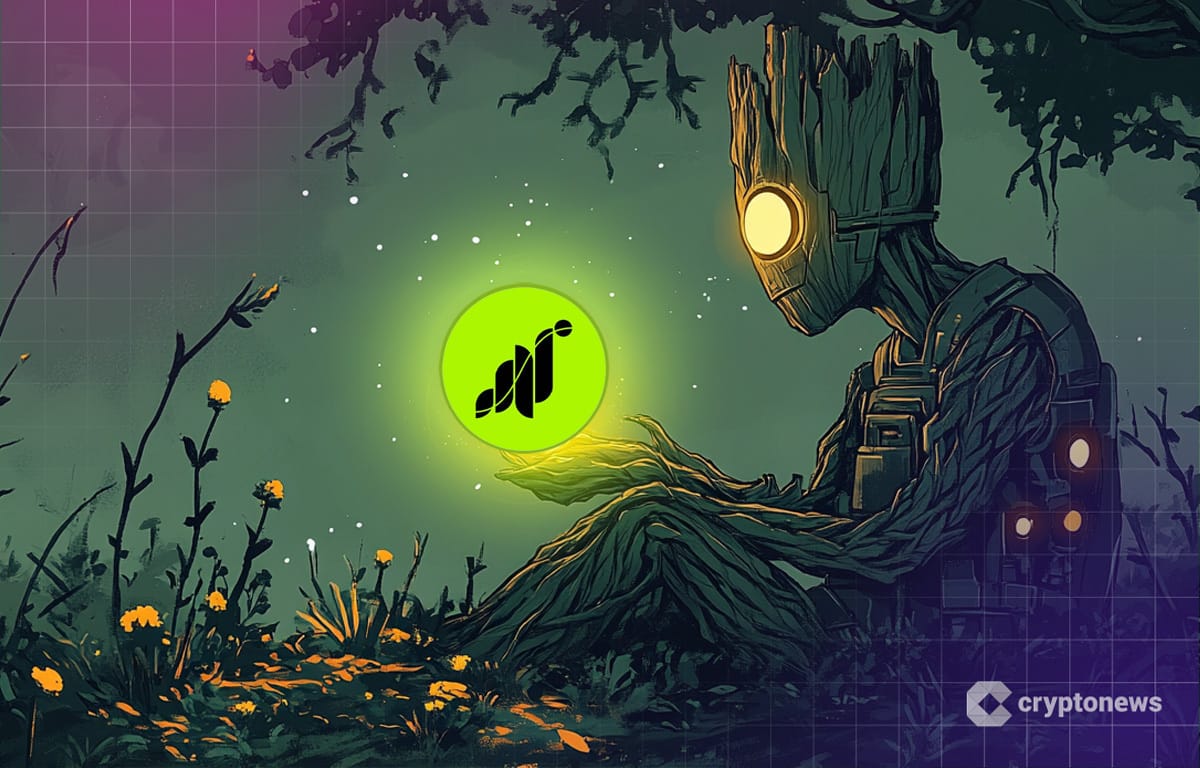
4 days ago
Grass Cryptocurrency: A Promising Yet Challenging Journey Ahead
The cryptocurrency project Grass, built on the Solana blockchain, has recently made headlines with a remarkable 494% surge in price following its airdrop. Initially, the price peaked at $3.89 on November 8, 2024, but has since stabilized around $2.3 to $2.4. With 2 million users and a position among the top 15 Decentralized Physical Infrastructure Network (DePIN) coins, Grass shows significant potential, although it faces regulatory scrutiny and challenges regarding its data collection practices. The project allows users to earn passive income through web scraping, utilizing unused internet bandwidth to train artificial intelligence, which raises concerns about privacy and data security.
Despite the initial excitement surrounding the airdrop, which distributed 10% of the total supply to users, the price has seen fluctuations. Analysts suggest that while Grass has established itself in the market, it must navigate potential regulatory hurdles and the lack of an audit for its code. The project’s unique model, which involves nodes, routers, and validators to manage data collection, positions it well within the growing DePIN sector. However, the project's reliance on user data and the absence of transparency in its operations may hinder its long-term growth prospects.
Looking ahead, the high annual percentage yield (APY) for staking, estimated at around 50%, and the anticipated launch of an iOS app in Q1 2025 could reignite interest in Grass. As the project continues to evolve, its ability to maintain user engagement and adapt to regulatory landscapes will be crucial. The crypto community remains cautiously optimistic, with traders noting that while the price may not experience drastic changes, it could stabilize and potentially rise again as the project matures and expands its offerings.

4 days ago
Multicoin Capital Predicts Major Revenue Growth for Decentralized Enterprises by 2025
Kyle Samani, co-founder of Multicoin Capital, has made an optimistic forecast regarding the future of decentralized enterprises, specifically Helium, Hivemapper, and io.net. He predicts that by the end of 2025, their combined revenue will exceed $100 million. Currently, these companies are generating over $50 million annually, and Samani believes that this figure could triple in the coming year. He emphasizes that 2025 will be a crucial year for decentralized physical infrastructure networks, particularly those built on the Solana blockchain, which are expected to significantly impact various industries by decentralizing essential infrastructure.
Multicoin Capital is recognized for its focus on innovative technologies that aim to decentralize and enhance critical infrastructure. The firm invests in both private equity and tokens for blockchain projects, providing support to entrepreneurs through various financing rounds. Among its notable investments are HNT, HONEY, and IO, all of which are working to revolutionize traditional industries with blockchain solutions. HNT, for instance, is a decentralized wireless network provider that incentivizes individuals to establish low-power wireless hotspots, transforming the wireless communication landscape.
In addition to HNT, HONEY is another key project in Multicoin's portfolio, which leverages user-generated content and blockchain technology to create a global map that allows contributions and profit-sharing. Meanwhile, IO is focused on decentralized cloud computing, offering infrastructure for high-performance applications. Samani's insights underline Multicoin's commitment to fostering decentralized innovation and supporting projects like Solana, which are paving the way for a future where decentralized networks will be integral to global infrastructure, reflecting a shift towards more decentralized solutions.
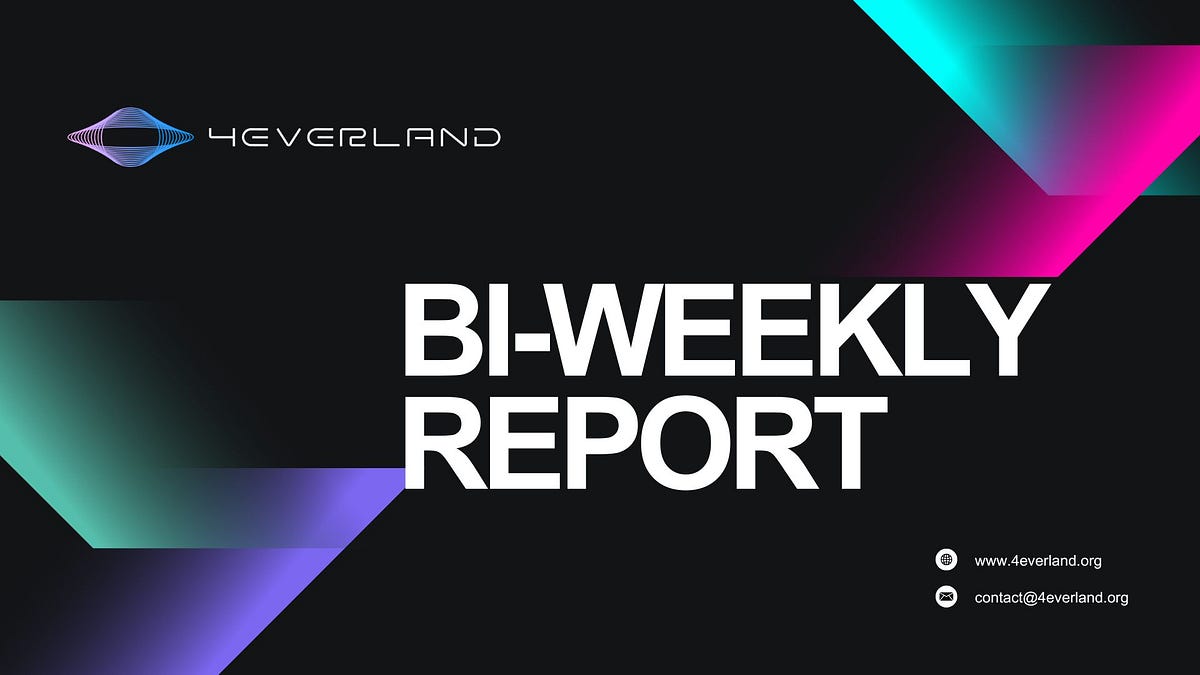
4 days ago
4EVERLAND's Bi-Weekly Report: Advancements in Decentralized Web3 Computing
### 4EVERLAND's Bi-Weekly Report: A Step Towards Decentralized Web3 Computing
The 4EVERLAND community is buzzing with excitement as the latest Bi-Weekly Report highlights significant advancements following the successful Token Generation Event (TGE). The report emphasizes the commitment to fostering a decentralized future for Web3 computing. Key updates include enhancements to the 4EVER Gateway, which now offers improved performance for faster global data access, and an increased subsidy for Arweave integration, promoting decentralized data permanence. Additionally, the expansion of decentralized nodes aims to bolster data redundancy and reduce latency for developers, marking a pivotal step in 4EVERLAND's ecosystem growth.
In terms of partnerships, 4EVERLAND has forged strategic alliances with notable players in the Web3 space. Collaborations with Trust Wallet and BNB Greenfield aim to enrich user experiences and encourage AI-powered solutions for decentralized applications. The introduction of the $4EVER token on platforms like Gate.IO and MEXC through collaborative campaigns further enhances the utility of 4EVERLAND's infrastructure. These partnerships not only strengthen the network but also position 4EVERLAND as a foundational layer for the decentralized internet, fostering trust and innovation in the ecosystem.
Community engagement remains a cornerstone of 4EVERLAND's mission. The report showcases standout community articles that delve into the tokenomics of $4EVER and the ambitious roadmap for 2025. Upcoming campaigns, such as the LAND Deposit Points Campaign and Arweave Hosting Giveaways, invite users to actively participate and benefit from the ecosystem. As the $4EVER token gains traction with a circulating supply of 800 million, the community is encouraged to stay connected through social platforms and contribute to discussions. With a focus on innovation and a community-first approach, 4EVERLAND is paving the way for a decentralized future in Web3 computing.
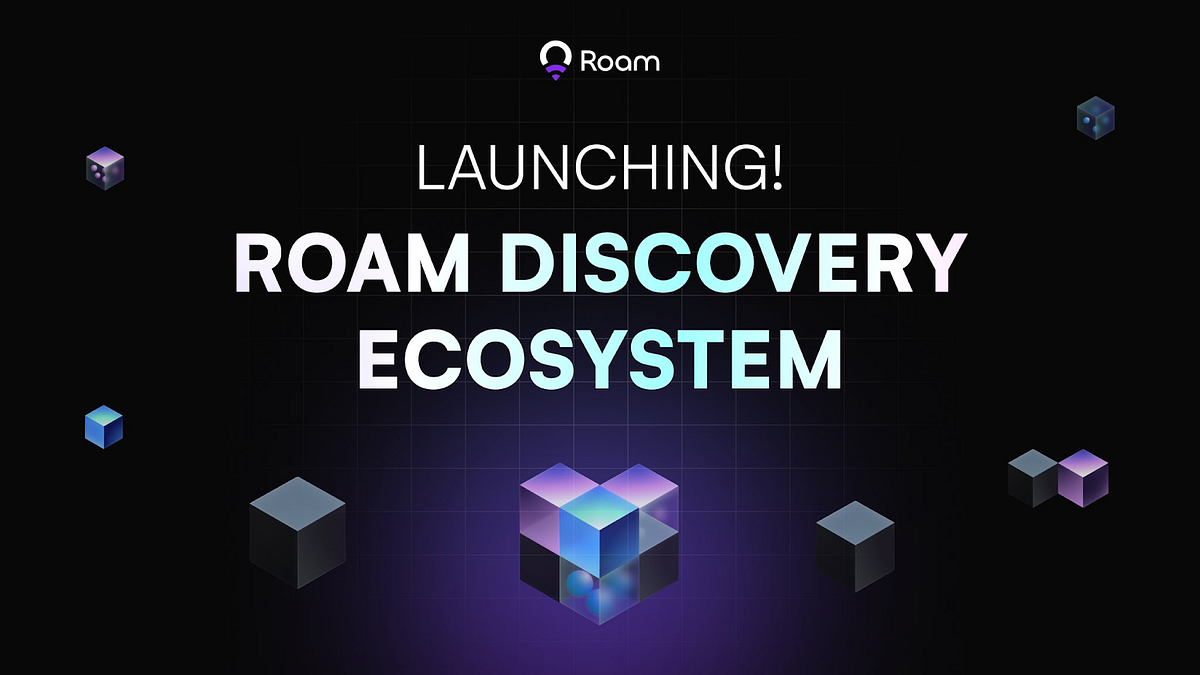
4 days ago
Roam Launches Discovery Ecosystem to Enhance User Benefits and Drive Innovation
On December 24, 2024, Roam officially launched the Roam Discovery Ecosystem, a groundbreaking platform aimed at enhancing user benefits through strategic partnerships within the ecosystem. This initiative marks a significant milestone for Roam users, as it promises sustainable returns by supporting innovative projects in their early stages, backed by strong community involvement. The Roam Discovery System provides access to the world's largest decentralized global wireless network, boasting over 1.7 million app users and more than 1 million nodes across 200 countries, thereby facilitating a transformative decentralized experience.
The Roam Discovery Ecosystem not only offers cutting-edge tools but also fosters a collaborative environment for eco-projects to expand their influence. By leveraging Roam's extensive global Wi-Fi node network, the platform provides partner projects access to invaluable user bases, grants, and community resources. The strategy includes enticing airdrop incentives and dual token mining opportunities, which promise significant future returns for users of both Roam and its partner projects. The ecosystem launches with 20 partner projects that are pivotal in advancing innovation across key sectors such as Layer 1, PayFi, and AI, including notable names like IoTeX, Huma Finance, and Mind Network.
Roam's commitment to advancing crypto mass adoption is evident in its recent collaborations with 20 leading projects, which include both established industry leaders and innovative startups. Since the introduction of its Physical Layer 1 narrative in September 2024, Roam has consistently ranked at the top for hardware node count on DePINscan, with over 1 million active nodes. In less than a year, Roam has achieved over 1.7 million users and 1 million nodes, solidifying its leadership in the DePIN sector. The launch of Roam Discovery aligns with Roam's 2025 Roadmap, which emphasizes product development, technological advancements, and community ecosystem growth, positioning Roam to redefine the future of the DePIN sector and foster a more interconnected digital society.
Signup for latest DePIN news and updates
